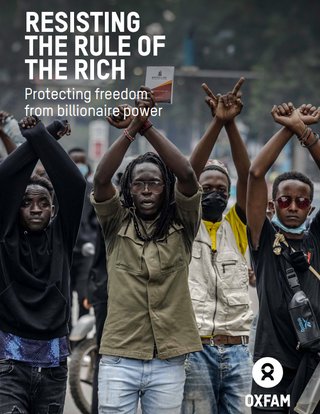African Union Development Agency invites proposals for youth empowerment, gender equality – primeprogressng.com

AUDA-NEPAD Call for Proposals: Advancing Sustainable Development Goals in Africa
Introduction
The African Union Development Agency (AUDA-NEPAD) has initiated a call for proposals to support projects that advance socio-economic inclusion, transformative leadership, and gender equality. This initiative is designed to fund practical, community-driven projects that deliver measurable impact and sustainable change, directly contributing to the achievement of the Sustainable Development Goals (SDGs) across the continent.
Alignment with Sustainable Development Goals (SDGs)
The program is strategically aligned with several key SDGs, aiming to create a synergistic impact on development outcomes. Proposals are expected to contribute to the following goals:
- SDG 5: Gender Equality: The core objective is to empower women and youth in political, economic, and community spheres. This includes specific targets such as preventing gender-based violence and advancing sexual and reproductive health and rights (SRHR), which are central to achieving gender equality.
- SDG 8: Decent Work and Economic Growth: By strengthening leadership and providing economic opportunities for women and youth, the initiative promotes inclusive and sustainable economic growth and productive employment for all.
- SDG 10: Reduced Inequalities: The focus on empowering marginalized groups, specifically women and youth, directly addresses the goal of reducing inequality within and among countries by fostering social and economic inclusion.
- SDG 16: Peace, Justice and Strong Institutions: Supporting transformative leadership at the community level helps build effective, accountable, and inclusive institutions, which are foundational for peaceful and just societies.
Funding and Scope
A total indicative budget of $1,962,000 has been allocated for this initiative over a 24-month period.
- Total Allocation: $1,962,000
- Regional Allocation: Each participating Regional Economic Community (REC) may receive up to $392,400.
- Individual Grant Range: Grants for individual projects will range up to $130,800 per participant, contingent on the project’s scope and objectives.
Eligibility Criteria
Eligible Applicants
Applications are invited from the following types of organizations:
- Legally registered civil society organizations (CSOs) operating within African Union member states.
- Enterprises, associations, communities, or cooperatives that are demonstrably women-led or youth-led.
- Institutions dedicated to supporting youth, promoting gender equality, and advancing socio-economic development.
Eligible Regions
Applicants must be based in one of the following Regional Economic Communities (RECs):
- East African Community (EAC)
- Common Market for Eastern and Southern Africa (COMESA)
- Southern African Development Community (SADC)
- Economic Community of West African States (ECOWAS)
- Economic Community of Central African States (ECCAS)
Application Requirements and Deadline
Proposal Requirements
All submitted proposals must adhere to the following guidelines:
- Clearly reflect the scope of planned activities within the 24-month project duration.
- Demonstrate direct alignment with the program’s objectives for gender equality (SDG 5), youth empowerment, and socio-economic inclusion (SDG 8, SDG 10).
- Present a detailed budget, a comprehensive work plan, and a framework for tracking clear, measurable outcomes.
Submission Deadline
The final deadline for the submission of proposals is November 30, 2025.
Analysis of SDGs, Targets, and Indicators
1. Which SDGs are addressed or connected to the issues highlighted in the article?
The article highlights issues and initiatives that are directly connected to several Sustainable Development Goals (SDGs). The primary focus on gender equality, youth empowerment, and socio-economic development links the call for proposals to the following SDGs:
- SDG 5: Gender Equality – This is the most prominent goal, explicitly mentioned in the call for proposals that support “gender equality,” “empowering women,” “gender-based violence prevention,” and “advancing sexual and reproductive health and rights (SRHR).”
- SDG 8: Decent Work and Economic Growth – The focus on “socio-economic inclusion” and empowering women and youth in “business” connects to promoting inclusive and sustainable economic growth and decent work.
- SDG 10: Reduced Inequalities – The initiative aims to promote “socio-economic inclusion” and empower marginalized groups, specifically women and youth, which is central to reducing inequalities within and among countries.
- SDG 16: Peace, Justice and Strong Institutions – By promoting the empowerment of “women and youth in politics” and strengthening their leadership, the initiative contributes to building more inclusive and participatory institutions.
- SDG 17: Partnerships for the Goals – The entire initiative is a form of partnership, where the African Union Development Agency (AUDA-NEPAD) provides funding and support to civil society organizations, women-led, and youth-led enterprises to achieve common development goals.
2. What specific targets under those SDGs can be identified based on the article’s content?
Based on the specific focus areas of the call for proposals, several SDG targets can be identified:
-
Under SDG 5 (Gender Equality):
- Target 5.2: Eliminate all forms of violence against all women and girls. The article directly addresses this by calling for projects involved in “gender-based violence prevention.”
- Target 5.5: Ensure women’s full and effective participation and equal opportunities for leadership in political, economic and public life. This is a core objective, as the initiative seeks to fund projects that “focus on empowering women and youth in politics, business, and communities” and “strengthen leadership among youth and women.”
- Target 5.6: Ensure universal access to sexual and reproductive health and reproductive rights. The article explicitly mentions that projects should focus on “advancing sexual and reproductive health and rights (SRHR).”
-
Under SDG 8 (Decent Work and Economic Growth):
- Target 8.5: Achieve full and productive employment and decent work for all women and men, including for young people. The call to support “socio-economic inclusion” and “women-led or youth-led enterprises” directly contributes to this target by fostering entrepreneurship and economic opportunities.
-
Under SDG 10 (Reduced Inequalities):
- Target 10.2: Empower and promote the social, economic and political inclusion of all, irrespective of age, sex, disability, race, ethnicity, origin, religion or economic or other status. The program’s stated goal of promoting “socio-economic inclusion” for women and youth is a direct reflection of this target.
-
Under SDG 17 (Partnerships for the Goals):
- Target 17.3: Mobilize additional financial resources for developing countries from multiple sources. The article details the mobilization of “$1,962,000” by AUDA-NEPAD to be allocated as grants, which exemplifies this target.
3. Are there any indicators mentioned or implied in the article that can be used to measure progress towards the identified targets?
The article does not mention specific official UN SDG indicators, but it strongly implies the use of project-level indicators by requiring that all proposals present “measurable outcomes.” This requirement ensures that funded projects will track their progress. Implied indicators include:
- Financial Flow Indicators: The total funding amount of “$1,962,000” and the individual grant range of “$0 to $130,800” serve as direct indicators for financial resource mobilization (relevant to Target 17.3).
- Project-Level Outcome Indicators: The requirement for “measurable outcomes” suggests that projects will need to report on metrics such as:
- The number of women and youth who have assumed leadership positions in politics or business as a result of project interventions (relevant to Target 5.5).
- The number of women-led or youth-led enterprises, associations, or cooperatives established or strengthened (relevant to Target 8.5).
- The number of community members reached through “gender-based violence prevention” programs (relevant to Target 5.2).
- The number of individuals who have gained access to information or services related to “sexual and reproductive health and rights (SRHR)” (relevant to Target 5.6).
- The number of legally registered civil society organizations (CSOs) receiving funding to promote gender equality and youth empowerment.
SDGs, Targets and Indicators Table
| SDGs | Targets | Indicators (Mentioned or Implied in the Article) |
|---|---|---|
| SDG 5: Gender Equality | 5.2: Eliminate violence against women and girls. 5.5: Ensure women’s full participation and equal opportunities for leadership. 5.6: Ensure universal access to sexual and reproductive health and rights. |
– Number of projects funded for “gender-based violence prevention.” – Number of women and youth empowered in “politics, business, and communities.” – Number of individuals reached by initiatives “advancing sexual and reproductive health and rights (SRHR).” |
| SDG 8: Decent Work and Economic Growth | 8.5: Achieve full and productive employment and decent work for all, including young people. | – Number of “women-led or youth-led enterprises, associations, communities, or cooperatives” supported. – Measurable outcomes related to “socio-economic inclusion.” |
| SDG 10: Reduced Inequalities | 10.2: Empower and promote the social, economic and political inclusion of all. | – Number of projects promoting “socio-economic inclusion” for women and youth. – Number of participants from eligible Regional Economic Communities (RECs) benefiting from the grants. |
| SDG 17: Partnerships for the Goals | 17.3: Mobilize additional financial resources for developing countries. | – Total indicative funding amount allocated: “$1,962,000.” – Individual grant amounts ranging from “$0 to $130,800.” – Number of civil society organizations (CSOs) funded. |
Source: primeprogressng.com
What is Your Reaction?
 Like
0
Like
0
 Dislike
0
Dislike
0
 Love
0
Love
0
 Funny
0
Funny
0
 Angry
0
Angry
0
 Sad
0
Sad
0
 Wow
0
Wow
0














































































